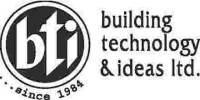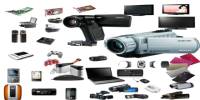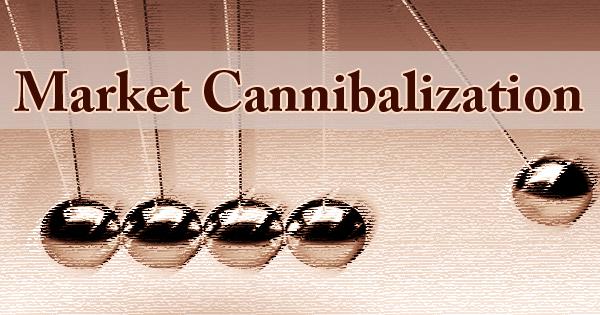a) To what extent do you consider BOC is marketing a tangible product verses a service? Do you think this might vary among the different customer industries it supplies with different types of gases?
Ans: BOC, which is the world’s largest gas manufacturer, sells augmented products. It means BOC sells such things which are the combination of both tangible products and intangible services. Through out the case we have found many evidences which reveal that BOC sells very tangible products such as gas and equipments, but they also provide trainings, advices, which are the most intangible part of their service.
This gas company’s tangible products range from supplying gases to engineering, manufacturing, construction industries. Not only that they also supply gases for air conditioners, refrigerators, pure gases for laboratory usage, pest control gases for agricultural use and gases for food industries.
BOC also provides welding and safety equipments for fabrication operations, gas cylinders for domestic and commercial use.
The gas provided by BOC is stored and distributed as a physical product. Even though BOC mainly provide tangible products but to add value to these products, this company also provides services. Among the services the most important one is the training provided to different industries about the use of gas products offered by BOC. This company also provides advice and information to its customers based on their demand and requirements. The gases supplied to hotels and fast food restaurants for fast chilling and carbonating beer and soft drinks is the example of services provided by the company.
The gases provided to hospitals for anesthesia and health care purposes supplied by BOC can also be considered as service.
The intangibility of their service reveals when this company’s relationship to its customers is considered. This company is the dominant supplier of many industries and has a very good relationship with its customers. To keep such relationship they provide very good quality products in an adequate time. The hospitals sometimes require gases in a very short notice and urgently for various reasons, to supply it quickly they need to provide good transportation and management systems, it can also be considered as service offered by BOC.
So as a whole BOC is marketing a combination of both tangible products and intangible services.
Weather BOC will provide tangible products or intangible services; it will definitely vary among industry to industry. The product offering also varies to industry to industry. In this case we have seen that BOC is offering gases to different industries and along with tangible products they sometimes need to add intangible services to facilitate or add value to tangible products.
As BOC provides gases to more than 50 country’s different industries ranges from manufacturing to health care sectors, there must be a lot of variations in their product offerings.
Though they offer the gas to these various industries but this gas varies to industry to industry. The gas provided to Manufacturing and construction industries are not the same as the gases supplied to hospitals. In manufacturing industries gases are used for welding, refining, casting and melting. Medical gases are supplied to hospitals for anesthesia and other health care purposes. Gases used in food and soft drinks industries for fast chilling and carbonating beer and soft drinks is different from the gases used in air conditioners, refrigerators or the pure gases supplied for laboratory usage or the pest control gases for agricultural use. So it can be said that different gases are offered to different industries.
As they are offering different type of gases to different industries, the method of using these gases also varies. It requires certain information, advice and training to handle these different types of gases. So In many industries BOC provide different type of trainings and advice on how to use the diverse type of gas products.
Not only that BOC supplied both the tangible products and intangible services according to different customer demand. For example, supplying gases to engineering, manufacturing, construction industries for welding and cutting operations, refining, casting and melting, BOC provide gas and the equipments. These are the most tangible products offered by the BOC. Gases for air conditioners, refrigerators, pure gases for laboratory usage, pest control gases for agricultural use, gases for food industries, welding and safety equipments for fabrication operations, gas cylinders for domestic and commercial use are also the example of tangible products offered by BOC.
In case of providing gases to hospitals, along with tangible gas and gas cylinders they also need to provide some services. For example, the hospitals sometimes require gases urgently for different reasons, to supply it quickly they need to provide good transportation systems and store some gases for emergency, so this is the service offered by BOC.
b) Using three of the different classification perspectives outlined in this chapter, discuss the management and marketing implications for BOC in general terms. Select and consider two gas customer groups in your answer highlighting any difference between them as well as providing the issues involved in the classification perspective.
Ans: The types of service and its category define the marketing and management perspectives of an organization. For BOC, the marketing and managerial implications based on three classifications of services are discussed below.
Marketable versus Unmarketable services: BOC are suppliers of gases which is of course a marketable service. By supplying gases to engineering, manufacturing, construction, food, agricultural, health care industries BOC is involved in marketable service. BOC also provides equipments for welding and safety equipments for fabrication operations and also for the welding materials consumed. These marketable services bring profit for the company and benefit the company.
On the other hand, BOC does provide unmarketable services when it provides less formal advice and information regarding the different areas of application on the use of its products. These services sometimes don’t add value to their business by incurring profit but they do these things to have a good relationship with their customers and make a good impression about them among the customers. BOC also provide the medical gases to hospitals in an urgent basis and for that reason they store it for emergency and distribute it in a short time. These services given by BOC can also be considered as their unmarketable service.
Industrial versus Consumer Services: BOC is a good example of a company which provides industrial service. As by way of providing its services, it is helping other businesses to produce something of economic benefit. Here, for example, the company provides gases for engineering, manufacturing, agricultural and construction industries for applications involving welding and cutting operations and this in turn adds value to the goods produced. Thus this company not only helps different industries, it also benefits itself by selling gases.
This company also helps the consumer service sectors by giving the individual customers different benefits. For example, it provides medical gases to hospitals for helping the doctors and medical professionals to cure the patients. Not only that, BOC also supplies gases to restaurants, food industries, refrigerators, air-conditioners for domestic purpose and thus helping the consumer groups. In this way BOC provides services to both industrial and consumer groups.
The role of the service in the product offering: BOC offers such products which are the combination of both tangible goods and services. Service can be classified according to the role service in the total offering and to do so three principal roles can be identified:
1. In some product offerings tangible elements exists in a small amount, only to support the intangible service. In the case of BOC tangible medical gases are supplied to support the intangible service of health care.
2. In their product offerings BOC involved services to add value to their tangible products. For example, while selling the equipments which are very much tangible, BOC provides training and advice to the users. Thus to sell the tangible product, which is equipment, they offer some service, such as training to add value to the product.
3. Sometimes services may add value to a product by making it available in the first place. In this case we have seen that as the hospitals sometimes need the medical gases in a short notice and urgently, BOC always stores gases and distributes to the hospitals in a timely manner.
In terms of the classification of the services two different customer groups are selected. These are: hospitals and welding companies. Both vary in their nature of service.
Hospitals are places where people are treated for their injuries and illnesses. Hospitals provide consumer services. Hospitals can be private as well as public where people can undergo treatment without any kind of payments. Welding on the other hand is a totally industrial venture mostly required for buildings and construction purposes.
Marketable versus Unmarketable services: Hospitals provide services which are both marketable and unmarketable. It provides unmarketable services in the sense that governments do provide healthcare benefits for the general public without any charge to the users. Hospitals, which are private are engaged in marketable services, because they charge fees from the patients and earn profit. Thus providing gases to hospitals BOC helps in both the marketable and unmarketable services.
The welding companies can be considered as marketable service as their main intension is to gain profit by helping in construction and industrial works to produce something with economic value.
Industrial versus Consumer Services: Hospitals can be underlined as consumer service as they are dedicated to serve the end consumers and no farther economic benefit results from the consumption of this service.
On the other hand welding companies provide industrial service as this service helps other industries to function and produce something of economic value. This is also a service which enhances a core tangible product.
The role of the service in the product offering: As the welding companies provide the most tangible service, in their product offerings they involve some services to add value to their tangible products. Thus to sell the tangible product, which is welding equipment, they may offer some service, such as training to add value to the product.
Sometimes services may add value to a product by making it available in the first place. The hospitals sometimes need the medical gases in a short notice and urgently, they need such services which will store gases and distributes to the hospitals in a timely manner.
In this way among these two customer groups there are lots of dissimilarities and the product offerings will be different for these two groups.
















